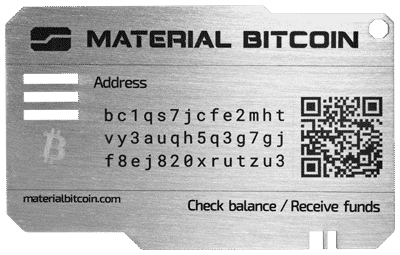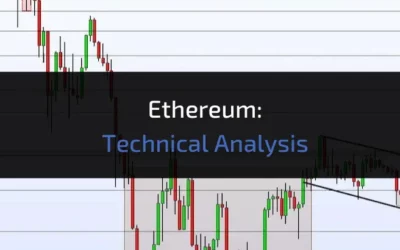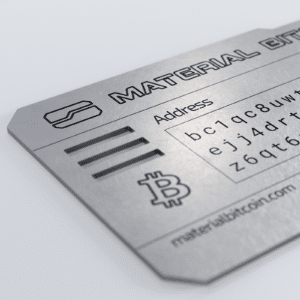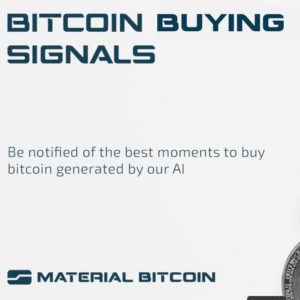There are a variety of crypto wallet types available for use both online and offline use. A self-custody wallet is just another type of cryptocurrency wallet that gives you complete control over your private keys.
This means that you are fully responsible, not the wallet provider or their servers, to manage, store, and secure your own funds.
Custodial wallets rely on a third party, like an exchange, to store private keys and manage assets. With self-custody wallets, your private keys are with you, meaning no one else can access them.
Custodial Wallet vs. Self-Custody Wallet
| Feature | Custodial Wallet | Self-Custody Wallet |
|---|---|---|
| Control of Private Keys |
|
|
| Fund Management |
|
|
| Security |
|
|
| Convenience |
|
|
| Risk of Loss |
|
|
| Control Over Transactions |
|
|
| Backup & Recovery |
|
|
How Do Self-Custody Wallets Work?
Self-custody wallets function by giving you full control over your private keys.
Private keys are the unique codes needed to access and manage your crypto.
When you create a self-custody wallet, the wallet generates a pair of cryptographic keys:
1️⃣Your public key – This is known as your wallet’s address and is visible to the public, just like a bank account number. It is used to send and receive crypto.
2️⃣Your private key – This is for your eyes only and is what allows you to access your crypto assets and authorize transactions.
With non-custodial wallets, your private key is stored on your device and never shared with anyone, however, there are two different types of self-custody wallets: hardware wallets and software wallets.
Hardware Wallets vs. Software Wallets
When storing your crypto, you must decide between a hardware wallet and a software wallet.
Each has its advantages, but understanding the differences is important for making the right choice for your needs.
Hardware Wallets
These are physical devices that store your private keys offline. They are considered more secure compared to software wallets because they protect your keys from possible online threats.
Since these wallets don’t rely on a connection to the internet, they are safer and therefore ideal for long-term storage of large amounts of cryptocurrency.
Within the category of hardware wallets, there are two types: electronic hardware wallets and non-electronic hardware wallets.
Non-electronic wallets are considered cold storage because they are truly 100% offline and never connect to another device.
Regarding cold storage vs. hardware wallets, cold storage is always the safer choice because it never interacts with another device or network. Having this complete disconnection ensures that your crypto will never be attacked.
It is ideal for long-term holding since there is no need to access it regularly.
Software Wallets
These are usually apps that are installed on your computer or mobile device.
They are more convenient for everyday transactions and active trading because they are always connected to the internet, although, this also means that they are more vulnerable to online attacks.
They are better for active traders who need to access their crypto multiple times a day.

Top Self-Custody Wallets in 2024
Guarda Wallet (Software Wallet): Guarda is a versatile, user-friendly software wallet that supports over 400,000 cryptocurrencies. It is available on desktop, mobile, and as a web extension.
Trust Wallet (Software Wallet): Trust Wallet is another top software option. It is the better choice for users who are invested in decentralized finance (DeFi).
Material Bitcoin (Hardware Wallet): Material Bitcoin is a highly secure cold storage wallet that stores private keys offline. It is best for investors who want top-of-the-line security without the fuss of a complicated set-up.
Tangem Wallet (Hardware Wallet): The Tangem Wallet is another hardware wallet with a card-based design. Since your private keys are stored on multiple credit-card-sized cards, you can easily store them in your physical wallet, making it portable and convenient.
Both software and hardware self-custody wallets are good options depending on your needs.
For active trading or frequent access, software wallets like Guarda and Trust Wallet have better assessability. But, if you value security, then using one of the best hardware wallets like Material Bitcoin and Tangem Wallet is the better choice, especially for storing large amounts of crypto over the long term.
Regardless of your choice. Make sure to store your private keys and recovery phrases in a safe place!
Did You Know?
Over 20% of all Bitcoin in circulation is “lost” due to forgotten private keys, highlighting why self-custody users must securely store and back up private keys.
How to Choose the Best Self-Custody Wallet for You?
1. How Important is Security to You?
A. I want my wallet to be secure and easily accessible for daily trading.
B. Security is my top priority. I want maximum protection for my crypto.
If you answered A = You may prefer a software wallet that has a good balance between security and convenience. TIP: Look for options that provide 2FA and encrypted backups for additional safety.
If you answered B = Hardware wallets that provide top-level security features like offline storage are best.
2. What Coins Do You Want to Store?
A. I’m invested in several different cryptocurrencies, so I need a wallet that supports a wide range of coins.
B. I only hold a few types of crypto, so I just need a wallet that handles my core investments.
If you answered A = Look for wallets with multi-crypto support. Trust Wallet, Guarda Wallet, and Coinbase Wallet are great software options that support multiple assets, from Bitcoin to lesser-known altcoins.
If you answered B = You have options in both hardware and software wallets, but you should make sure they support your specific coins. Material Bitcoin is an excellent hardware wallet for Bitcoin enthusiasts.
3. How Much Does Ease of Use Matter to You?
A. I’m tech-savvy and willing to take the time to learn how to use a more complex system, including downloading apps and updating software frequently.
B. I want something easy and intuitive. I need to access my funds without too much hassle.
If you answered A = Software wallets are more accessible but might have a steeper learning curve due to all the options included on multiple platforms.
If you answered B = A cold hardware wallet is your best bet. Most of them provide QR Code scanning or TAP actions to quickly access your funds without the need to download or connect to other external devices.
Your Decision:
If your answers leaned toward A, a software wallet might be better due to its accessibility, especially for active traders and multi-coin holders.
If you lean towards B, a hardware wallet is your best option.
Laws and Regulations of Self-Custody Wallets
In both the United States and the European Union, using self-custody wallets is generally considered legal, nevertheless, new regulations are evolving and changing as governments are trying to find ways of adapting to the growing crypto market.
In the U.S., self-custody wallets are legal, however new legislation from the Financial Crimes Enforcement Network (FinCEN) is enforcing Know Your Customer (KYC) and Anti-Money Laundering (AML) requirements for exchanges and wallet providers. This may or may not change based on the upcoming U.S. elections, but it seems that governments still want to know who owns what and how much.
In the EU, self-custody wallets are recognized under the Markets in Crypto-Assets (MiCA) regulation. MiCA does not restrict the use of self-custody wallets, but it does have strict requirements on crypto service providers. It aims to protect users, ensuring that they have the right to store their digital assets privately without interference.
Pros and Cons of Self-Custody Wallets
Advantages:
- Ownership & Control: You have full ownership of your assets. You never need to rely on a third party.
- Security: Eliminates the risk of exchanges being hacked or going bankrupt. You “own” your private keys.
- Privacy: Your private keys remain offline.
- Reduced Fees: Usually considered a cheaper option as there are no additional security measures for protecting outsourced servers.
Drawbacks:
- Responsibility: If you lose your private keys, you lose access to your funds permanently.
- Lack of Support: There’s no third-party assistance for recovery or transaction issues; you’re 100% responsible for securing and managing your crypto wallet.
Is It Worth Using a Self-Custody Wallet in 2024?
The simple answer is…YES!
Using a self-custody wallet is definitely your best option in 2024. As concerns about exchange security and recognition of digital asset ownership rights are changing, self-custody wallets give you full control over your assets.
Prioritizing security, especially with cold storage options, gives you the maximum protection by keeping private keys completely offline.
Although self-custody means more responsibility on your part, it’s perfect for those who value security and independence.










0 Comments